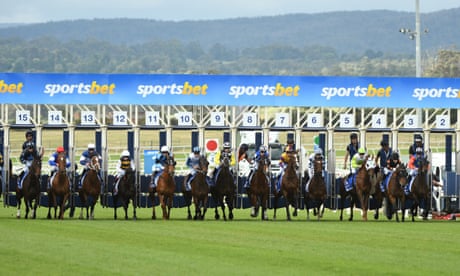Extract from The Guardian
Exclusive: oversight by commission that licenses majority of Australia’s online betting companies branded as ‘disgraceful’ by advocates.
Sat 4 Mar 2023 01.00 AEDT
Last modified on Sat 4 Mar 2023 01.02 AEDTThe oversight, which has been described as “disgraceful” and “shameful” by harm reduction advocates, has added to calls for a new and better-resourced national regulator to oversee the $50bn sports gambling industry.
Almost all online betting companies in Australia are licensed in the Northern Territory for historical tax purposes, despite the bookmakers operating nationally and many having headquarters on the east coast.
On Tuesday, the Northern Territory Racing Commission (NTRC) wrote to several companies alerting them to a flaw in the territory’s self-exclusion register, which also allows people to ban themselves from receiving gambling advertisements.
The letter, sent on 28 February and seen by Guardian Australia, said people who signed the voluntary self-exclusion form before 2018 did not give the commission “the authority to provide the person’s details to newly established wagering companies”.
“There are approximately 48 persons that requested exclusion prior to this date, or have used the old self-exclusion notice, and whose details may not have been shared with operators since then,” the letter said.
Several new online bookmakers have launched since 2018, including News Corp-backed Betr, which was fined by the commission for contacting people on the NT self-exclusion register and encouraging them to open new accounts. BetNation, which has also breached the NT’s responsible gambling code, was launched last year.
The turnover of sports betting companies licensed in the NT has doubled from $24.6bn in 2018 as a result of the popularity of smartphone applications, official partnerships with major sporting codes and lucrative advertising deals.
“The commission requests that each licensee review the list of self-excluded individuals and ensure that any of these persons, not currently holding an account, be immediately noted as excluded,” the letter said.
“No correspondence is to be sent to the individual. If a listed individual does have an active account, the commission requests that it is notified of those details before any action is taken.”
The letter was sent on the same day the commission’s chairman, Alastair Shields, told a parliamentary inquiry he was concerned the federal government’s proposed national self-exclusion scheme BetStop wasn’t strong enough.
Shields told the committee the NT’s low-tech and burdensome system, which relies on Excel spreadsheets and pdf documents, would continue unless changes were made to BetStop.
The Northern Territory government and the NTRC were contacted for comment but did not respond before deadline.
Charles Livingstone, an associate professor of public health at Monash University who focuses on gambling, said the letter revealed “a shameful incident” that should have been addressed a long time ago.
“That is just disgraceful, there is no other word for it,” Livingstone said. “Even if there was a loophole in the law, that should have been recognised long ago and resolved. It’s a demonstration of just how little priority has been given to protecting the interests of consumers.”
The Alliance for Gambling Reform chief executive, Tim Costello, said he was “aghast” at the admission.
“To have a code and then admit you cannot enforce it is the definition of uselessness,” Costello said. “The industry and the regulators talk a good game about codes and how they’re updating them and that they are shiny and new, and now we find out they have no teeth.”
Prof Samantha Thomas, who researches gambling at Deakin University, said the oversight showed the need for a national regulator that could also develop new consumer protection systems.

No comments:
Post a Comment